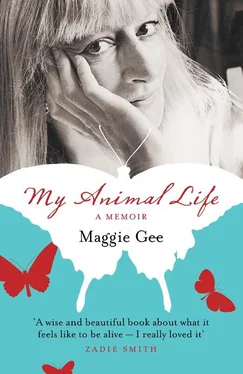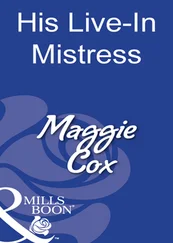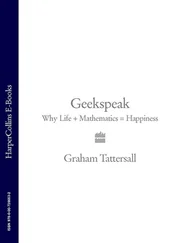I saw it in theory, then I learned it in practice.
1995: a watershed. I was forty-six; Rosa was eight. My agent had moved to Canada; I was passed on to the excellent managing director of the same agency, who was known as a good agent, and a gentleman, but the truth was, he had not specifically chosen me, and inheritance did not seem the safest route. (Yet my editor at HarperCollins, too, had inherited me, after the death of the editor who chose me. I should have seen the signs, I should have seen the danger, but I lived day to day, writing, Rosa, Rosa, writing , pell mell, myopic.) I was very ambitious, am ambitious still. It felt as though this was make or break. I was on my way to fifty. I had to get up there.
It’s hard to recreate all the reasons for the crash. If I had a tragic flaw, it was arrogance, which sounds like ignorance, and came from it. I simply thought I could do what I wanted. If you don’t come from a literary background, perhaps it takes you longer to learn the rules? And I had stayed curiously isolated. Even though I had been one of the ‘Best of Young British’, even though I had been a Booker judge, I had mostly stayed at home with Nick and Rosa, writing books and getting on with my life. I thought that the writing was all you had to do . It seems extraordinary, looking back at it now, but I’d probably been to less than a dozen literary parties, all told. I didn’t see that they were important. I see it now; you get out there and smile, and meet people, and are seen on the circuit, which means you are recognised as ‘one of us’. Moreover, you learn lessons from the group. I should have attended to a stray remark Jonathan Warner made when he paid so well for me: ‘I love your work, but I was surprised, when I asked around the office, some people hadn’t heard of you.’ I wasn’t on the circuit. I remained naïve, and my thought processes don’t bear examination.
Perhaps, now Jonathan was dead, I should move from HarperCollins, even though I was in the middle of a two-book contract? I had no personal links there any more, and I’d heard of people doing just that. We would get a big advance, and pay them off (yet advances, all round, were too big, in the ’80s. I saw the crest building, I didn’t see the crash.) I had moved before, I could move again (but you can’t keep moving on for ever. Too many moves give you a bad reputation.) Yes, I felt my age meant I had to climb, but I hadn’t considered it was also a drawback. I thought I was still seen as a young contender. At forty-six, it was a dangerous assumption.
I approached the tallest, and said to be the toughest, agent with a literary reputation. His name had lustre because of his clients, yet the offices were small and uncomfortable and hard to get to, and I never felt at ease. Personally we were ill-assorted; he was too tall, too aristocratic, too dry, too shy, with an amused, conspiratorial manner that meant nothing; he had been very good at making money, and very good at picking clients. Yet he was also known for his love of good writing. From the little we talked, I think this was true; he loved Nabokov, as did I, and I was desperate to believe in him. I sent him my book to see if he liked it, and he said he thought it ‘remarkable’. He read it on some Greek island and left a praising message on my answerphone. What a fool I was; I kept the tape for weeks.
I went to see the first, and much more simpatico, agent who thought he had inherited me. He sat in his office with my book on his lap, and I saw he did like it, and was slightly hurt when I told him I was probably going to leave, though he had a wealth of clients, and of course soon got over it (why was I so stupid? I liked this first man, instinctively trusted him, could talk to him, yet I opted for the austere unknown because I thought he could magically lift me into the literary stratosphere, with his other clients. I thought I was making the right decision, yet lunch with this second man was empty and uncomfortable, and part of me wondered if his reputation came partly from his height, and his upper-class drawl, for literary agents are not usually so lofty. I should have listened to my animal instincts rather than the vaulting ambition of my brain.)
Thus bolstered by the good opinions of two agents who had to praise me to represent me — which does not mean they were insincere, but an agent’s job is to hook new names — and my husband’s enthusiasm (he read the book with the doors open on our green garden, as spring came on; he loved me, he loved it, but warm April possibly hazed his senses) — I dispatched the book to HarperCollins. I was mostly buoyant. Now everything would change.
Yet part of me was anxious. Such a very long novel. It was partly to do with the look of the manuscript. It’s part of the ‘frame’ that, according to psychologists, conditions the greater part of people’s response; what they know, or think they know, before they start reading. The Keeper of the Gate was the first book I had written straight on to computer (Where are the Snows and Lost Children were both drafted longhand). I used a huge font (why?), 14 pt, too many spaces, too many ellipses. In manuscript this novel ran to nearly 500 pages. Perhaps I was unconsciously trying to say to the publishing world, ‘This is big, this is a substantial book.’ Probably it just looked long and shapeless.
My relationship with the new editor at HarperCollins Flamingo was non-existent, so the ground my work fell on was unprepared (always get on with your editor . Sometimes you really do need advice.) He had suggested we meet for a drink at intervals to discuss progress. But I never discussed my works-in-progress. Besides, at first there was no progress: not until the first four months of 1994 did the novel suddenly burst free of chaos. And this book was, to say the least of it, unusual. Not the manuscript to send to the new editor who, it’s cruel to say, but true, was best known for having commissioned a novel inspired by a TV coffee advert.
Why was my sixth novel unusual? Because it was about race. The germ of it was a racial killing. In April 1993, the black student Stephen Lawrence had been murdered at a bus-stop in south-east London by racist white youths. It was a horrible case, one of the sudden outbreaks of savagery that tells us London isn’t just a great city of endlessly mixing genes and peoples. We were not post-racist, then or now; we merely legislate against it, and rub along together, and marry each other, and hope for the best, which mostly happens — but every so often, so does the worst.
My personal experience of the crime sounds trivial. Rosa’s school was in Brent, which had, at the time, the highest proportion of black people in the UK. Naturally Rosa had black friends, naturally I was friends with their mothers, Rochelle’s mother Sandra, Shakira’s mother, a friendship built on shared love of our children. But British black people felt burning indignation over this murder. One of their best, a good student, a boy who should have become a lawyer, had been senselessly killed by white racists. The veil was lifted; their worst fears were true. For a while, all white people stood accused. And I found that my black friends, who I liked and valued, for a while were unable to meet my eyes. A veil had come down, though it didn’t last.
But I still felt accountable. What had I actually done to dissociate myself from the murderers? In 1982, when American Cruise missiles were about to be sent to Britain, I had written my anti-war novel The Burning Book ; in 1988, the murder of eighty-four-year-old antinuclear campaigner Hilda Murrell had inspired my fourth novel, Grace . What was I going to do this time?
I wanted to protest; as Dickens did against the evils of his day, and Thackeray, and George Eliot — so many great nineteenth-century novelists. It didn’t make them less literary. Many of my literary models are modernist — Virginia Woolf, Vladimir Nabokov — but for me the modernist aesthetic breaks down when it isolates the writer from the world. Like the modernists, I love pattern, and try to give each book an overall controlling form, but I also have one eye on reality. I want my books to express the whole of me, politics and jokes as well as love of beauty.
Читать дальше












